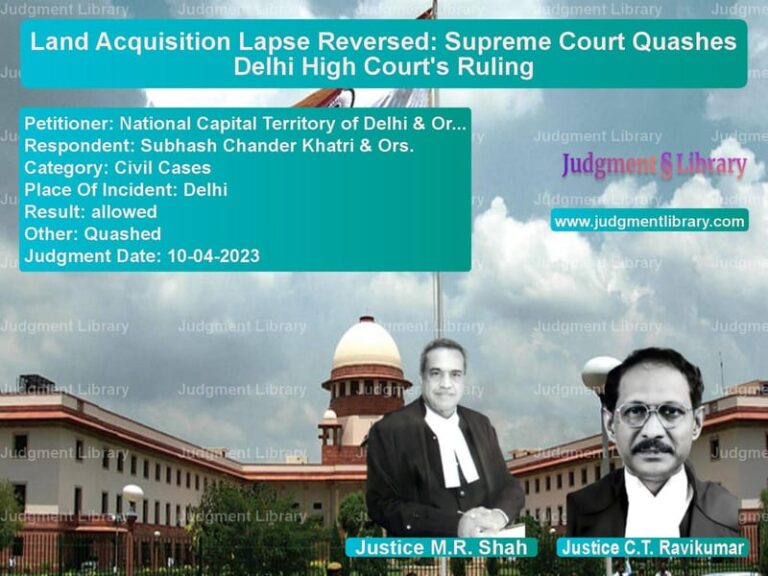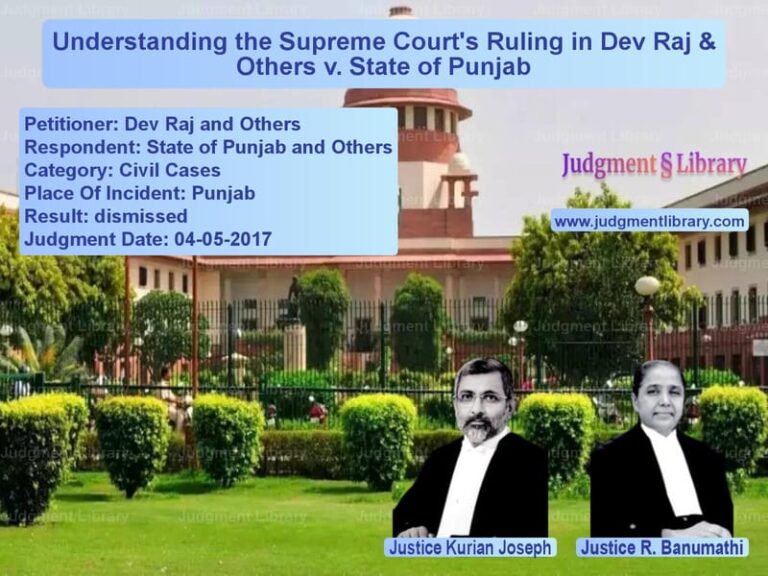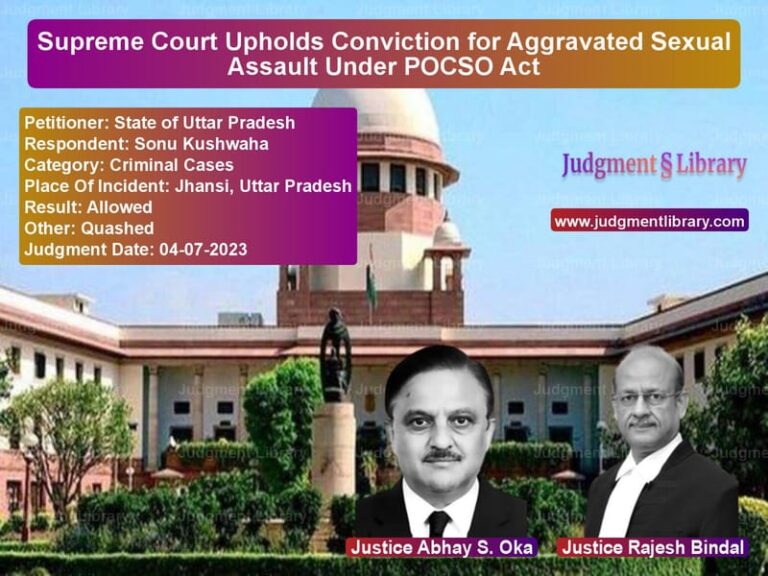Conviction under NDPS Act: Supreme Court Upholds High Court’s Verdict
The case of Varinder Kumar v. State of Himachal Pradesh presents an important ruling concerning the Narcotic Drugs and Psychotropic Substances (NDPS) Act, 1985. The appellant, Varinder Kumar, was convicted under Section 20(ii)(c) of the NDPS Act for carrying ‘charas’ in two gunny bags on his scooter. The Supreme Court upheld the High Court’s decision, which reversed the Trial Court’s acquittal and sentenced him to 20 years of imprisonment along with a fine of Rs. 2 lakhs.
Background of the Case
Varinder Kumar was apprehended on 31.03.1995 with the contraband. The Trial Court acquitted him, citing non-compliance with legal provisions, including Section 100(4) of the Code of Criminal Procedure (CrPC) regarding independent witnesses and violations of Sections 50, 52, and 57 of the NDPS Act. However, the High Court overturned this acquittal, stating that the seals prepared at the time of seizure were presented in court as evidence and that Section 50 of the NDPS Act did not apply since the recovery was made from gunny bags rather than the accused’s person.
Petitioner’s Arguments
The appellant’s counsel contended that the accused was falsely implicated due to a prior complaint against the CID. The main independent witness, PW-5 Naresh Kumar, had turned hostile, and the second independent witness, Jeevan Kumar, was not produced by the prosecution. Additionally, the investigating officer, who was also the informant, led to a biased investigation, violating the accused’s right to a fair trial.
Respondent’s Arguments
The State opposed the appeal, arguing that the High Court’s decision was well-reasoned. It highlighted that the appellant had a history of convictions under the NDPS Act and that the issue of the investigating officer also being the informant was never raised at any prior stage of litigation.
Supreme Court’s Observations
The Supreme Court emphasized that a fair trial requires an independent investigation, as per its ruling in Mohan Lal v. State of Punjab. However, it also clarified that the principle should not be applied retrospectively in cases where investigations were conducted before the ruling. The Court ruled that the conviction should not be overturned solely on procedural lapses if the overall evidence supported guilt beyond a reasonable doubt.
Final Judgment
The Supreme Court dismissed the appeal, affirming the High Court’s ruling and maintaining the conviction and sentencing of the appellant.
Petitioner Name: Varinder Kumar.Respondent Name: State of Himachal Pradesh.Judgment By: Justice Ranjan Gogoi, Justice Navin Sinha, Justice K.M. Joseph.Place Of Incident: Himachal Pradesh.Judgment Date: 11-02-2019.
Don’t miss out on the full details! Download the complete judgment in PDF format below and gain valuable insights instantly!
Download Judgment: Varinder Kumar vs State of Himachal Pr Supreme Court of India Judgment Dated 11-02-2019.pdf
Direct Downlaod Judgment: Direct downlaod this Judgment
See all petitions in Drug Possession Cases
See all petitions in Bail and Anticipatory Bail
See all petitions in Judgment by Ranjan Gogoi
See all petitions in Judgment by Navin Sinha
See all petitions in Judgment by K.M. Joseph
See all petitions in dismissed
See all petitions in supreme court of India judgments February 2019
See all petitions in 2019 judgments
See all posts in Criminal Cases Category
See all allowed petitions in Criminal Cases Category
See all Dismissed petitions in Criminal Cases Category
See all partially allowed petitions in Criminal Cases Category







